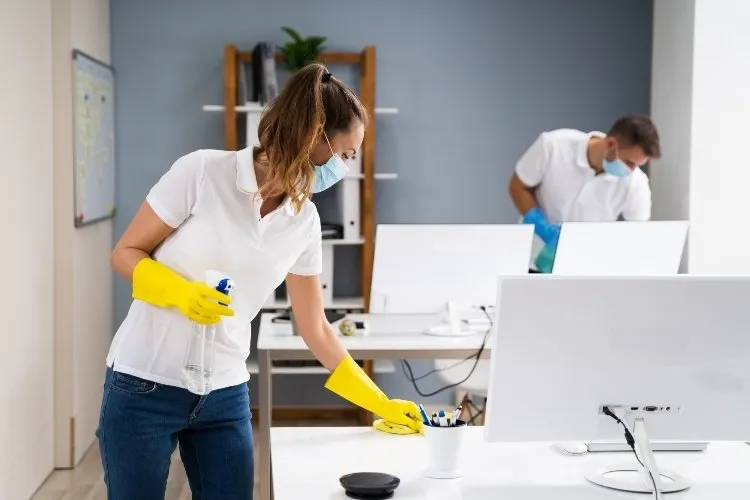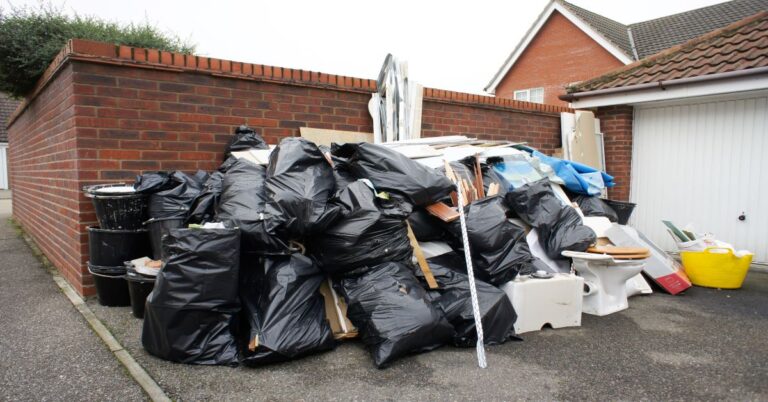Daily vs. Deep Cleaning: What Offices Really Need
Maintaining a clean office is essential for ensuring employee health, enhancing productivity, and creating a professional image for clients. However, when it comes to keeping workplaces spotless, many businesses struggle to decide between daily cleaning routines and occasional deep cleaning. Both play critical roles in workplace hygiene, but their purposes, frequency, and benefits differ significantly. Understanding how they complement each other helps businesses maintain the perfect balance for a healthier and more productive environment.
In busy corporate hubs, professional services such as office cleaning in Manchester provide both daily and deep cleaning solutions tailored to the needs of each workplace. While some companies may prioritize daily upkeep, others may require regular deep cleaning to address areas that accumulate hidden dirt and germs. The key is knowing what your office really needs.
What Is Daily Cleaning?
Daily cleaning refers to the routine tasks carried out every day to maintain basic hygiene and tidiness. These tasks focus on areas most frequently used by staff and visitors, ensuring that the office remains presentable and safe.
Common daily cleaning tasks include:
- Emptying bins and disposing of waste
- Wiping down desks and workstations
- Vacuuming or sweeping floors
- Cleaning restrooms and replenishing supplies
- Sanitizing high-touch surfaces like doorknobs, keyboards, and phones
The primary goal of daily cleaning is to provide employees with a consistently clean and pleasant environment where they can work productively. It helps prevent dirt build-up and reduces the spread of germs between staff members.
What Is Deep Cleaning?
Deep cleaning, on the other hand, goes beyond the surface level. It is a more thorough process designed to tackle hidden dirt, dust, and bacteria that daily cleaning may miss. Typically scheduled on a monthly, quarterly, or semi-annual basis, deep cleaning covers areas that are less frequently cleaned but are crucial to maintaining long-term hygiene and workplace safety.
Deep cleaning tasks often include:
- Shampooing carpets and upholstery
- Washing windows and blinds
- Cleaning air ducts and ventilation systems
- Scrubbing tile grout and sanitizing hard-to-reach areas
- Polishing floors and removing built-up grime
Deep cleaning not only improves hygiene but also helps extend the life of office furniture, flooring, and fixtures, making it a cost-effective long-term investment.
Why Offices Need Both
Many businesses mistakenly believe that daily cleaning alone is enough to keep the office safe and healthy. While daily routines address immediate hygiene, they cannot replace the benefits of deep cleaning. Without regular deep cleaning, offices may accumulate dust, allergens, and germs in hidden areas, leading to health issues and reduced workplace efficiency.
A combined approach ensures that employees enjoy a consistently clean environment while also benefiting from the deeper sanitization that prevents long-term problems. This balance is particularly important in offices with high foot traffic, shared spaces, or employees who suffer from allergies and respiratory conditions.
The Impact on Employee Health and Productivity
A clean workplace reduces the spread of illness, decreases sick days, and improves overall employee well-being. Daily cleaning helps minimize germs on high-touch surfaces, while deep cleaning tackles hidden bacteria and dust that can impact air quality. Together, they create a healthier environment where employees can focus better, collaborate more effectively, and maintain higher levels of productivity.
Tailoring Cleaning Frequency to Office Needs
The ideal balance between daily and deep cleaning depends on the specific needs of each office. For example:
- Small offices with fewer employees may require less frequent deep cleaning but should maintain consistent daily routines.
- Large corporate offices with heavy foot traffic benefit from daily cleaning complemented by monthly or quarterly deep cleaning.
- Specialized environments like healthcare offices or tech hubs may require more frequent deep cleaning due to stricter hygiene standards.
By assessing workplace size, usage patterns, and employee health needs, businesses can create a cleaning schedule that maximizes both hygiene and efficiency.
Professional Cleaning: The Smart Choice
While some businesses attempt to manage cleaning tasks internally, hiring professional cleaners ensures thoroughness, reliability, and efficiency. Professionals are trained to handle both daily and deep cleaning, using advanced equipment and eco-friendly products that deliver better results. This allows employees to focus on their work while ensuring the office remains a safe and welcoming place.
Final Thoughts
Daily and deep cleaning are not opposing choices—they are complementary strategies that together ensure a workplace is both clean on the surface and hygienic at its core. Daily cleaning keeps the office neat and healthy on a routine basis, while deep cleaning addresses hidden risks and extends the life of office assets. By combining both approaches and tailoring them to workplace needs, businesses can create an environment that promotes health, productivity, and professionalism.







